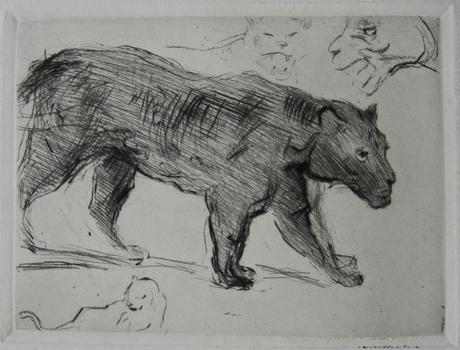 Max Slevogt (1868-1932), Schwarzer PantherEtching (with three extra panthers as drypoint remarques), 1914
Max Slevogt (1868-1932), Schwarzer PantherEtching (with three extra panthers as drypoint remarques), 1914THE PANTHERJardin des Plantes, Paris
His barred eyes have grown so tiredof pacing, they have emptied out.As if there were a thousand barsand beyond those thousand bars, a hollowness.
The supple flexure of his paws,revolving in an ever-tightening gyre,creates a passionate dance aroundthe still center of his fierce, numbed will.
Just sometimes, the shutter of his lenslifts, without a sound.An image enters, pulses through the coiled spring of his sinews,and winks out in his heart’s great silence.translation © copyright Neil Philip 2014

